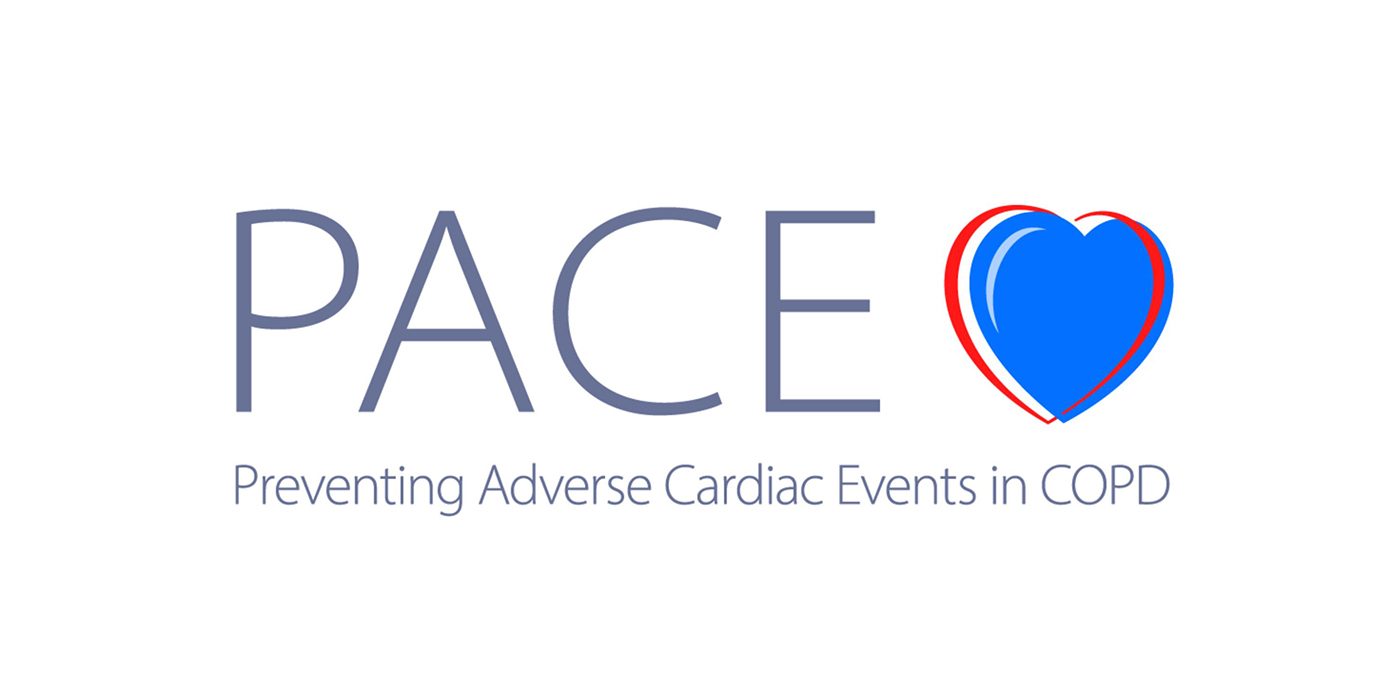
Preventing Adverse Cardiac Events in Chronic Obstructive Pulmonary Disease (PACE in COPD)
Chronic Obstructive Pulmonary Disease (COPD) is the third-leading cause of global health-related disease and deaths. Heart disease is very common in people diagnosed with COPD, and is often the cause of health-related sickness and hospitalisations, causing 30-50% of deaths. Studies repeatedly show that cardiovascular disease in patients with COPD is under-recognised and under-treated yet patients with COPD are frequently not included in clinical trials of drugs which treat heart disease and reduce cardiac deaths.
Beta (β)-blockers are medications often used to treat heart disease. In this study, we will be investigating whether pro-active treatment with a β-blocker in participants with COPD can reduce cardiac events, such as stroke and heart attacks from occurring in the future, compared to placebo. This is important for people with COPD with either known or unknown underlying heart disease. The study also aims to investigate whether this treatment reduces the number of episodes of respiratory exacerbations, hospitalisations or pharmacological treatment.
Aim/Hypothesis: We aim to assess the efficacy of proactive treatment of cardiac risk in people with COPD. We hypothesise that treating known and undiagnosed CVD in COPD will improve both cardiac and respiratory outcomes.
Research Methodology: : This is a double-blind, randomized placebo-controlled trial conducted in 23 sites in Australia, New Zealand, India and Sri Lanka.
The study will enroll participants with moderate to severe COPD, aged 40-85 years. Participants will be symptomatic from their COPD and have a post-bronchodilator Forced Expiratory Volume in 1 second (FEV1) ≥ 30% and ≤ 70% predicted and a history of at least one exacerbation requiring systemic corticosteroids, antibiotics, or both in the prior 24 months. The intervention treatment will continue for 24 months
The study will enrol participants with moderate to severe COPD, aged 40-85 years. Participants will be symptomatic from their COPD and have a post-bronchodilator Forced Expiratory Volume in 1 second (FEV1) ≥ 30% and ≤ 70% predicted and a history of at least one exacerbation requiring systemic corticosteroids, antibiotics, or both in the prior 24 months. The intervention treatment will continue for 24 months.
Current Status: recruitment closed





